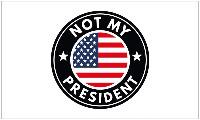- Posts: 4216
- Thank you received: 17
Trump and American people force obama to show BC today!
- Nobody that matters
-

- Mountain Legend
-

TPP wrote: O Never mind, I know why he lied.
Nope... He looked for the book on the shelf... 57...58...59...60...62?!?!?!?
CRAP! Now what am I going to do? Stall stall stall....
Until one day the intern comes in and says "Sorry, I took it home with me on vacation because my big brother bet me that there was no way I could get my hands on the Presiden't birth certificate. I had to shove it in his face."
"Whatever you are, be a good one." ~ Abraham Lincoln
Please Log in or Create an account to join the conversation.
- Pony Soldier
-

- User is blocked
-

- Posts: 4749
- Thank you received: 43
Science Chic wrote: www.scientificamerican.com/blog/post.cfm...-birthers-2011-04-27
Death of the birthers?
By Steve Mirsky | Apr 27, 2011The birth certificate in all its long-form glory has been revealed to a panting public. And so even the most hardcore so-called birther will now acknowledge that Barack Obama is legally entitled to serve as President of the United States, right? Well, not so fast.
In my October 2009 "Antigravity" column ("Birth of A Notion"), http://www.scientificamerican.com/artic ... f-a-notion I discussed the research of Harvard University psychologist Mahzarin Banaji on "implicit social cognition, http://www.scientificamerican.com/artic ... -prejudice which involves the deep-rooted assumptions we all carry around and even act on without realizing it."
http://www.scientificamerican.com/artic ... f-a-notion
Birth of a Notion: Implicit Social Cognition and the "Birther" Movement
Deeply held beliefs make it easy to accept the absurd
By Steve Mirsky | October 6, 2009Harvard University psychologist Mahzarin Banaji is a leader in implicit social cognition research. She excavates the hidden beliefs people hold by measuring how fast they make value judgments when shown a rapid-fire succession of stimuli, such as photographs of faces.
At a talk she gave in October 2008 to a group of science journalists, Banaji discussed research she did with Thierry Devos, now at San Diego State University, that examined bias against Asians. They found that volunteers linked white Americans more strongly than Asian-Americans with, well, America. Banaji and Devos then decided to do what even they thought was a “bizarre” study: they had people gauge the “American-ness” of famous Asian-Americans, such as Connie Chung and tennis player Michael Chang, versus European whites, such as Hugh Grant.
The study found that white Europeans are more “American” than are nonwhite Americans in most minds. That result helps to explain how MSNBC’s Web site in 1998 could have run the remarkable headline “American Beats Out Kwan” with a story on how Tara Lipinski defeated fellow American Michelle Kwan in a figure skating competition.
http://www.scientificamerican.com/artic ... -prejudice
The Implicit Prejudice
Mahzarin Banaji can show how we connect "good" and "bad" with biased attitudes we hold, even if we say we don't. Especially when we say we don't
By Sally Lehrman | May 22, 2006Even in people with genuinely egalitarian views, Banaji and her colleagues find that bias is ordinary and ingrained and remains active outside our awareness. When the team realized the power of unconscious attitudes in everyday decision making, she says, "we knew the right thing was to take this to the public." On an IAT Web site (implicit.harvard.edu/implicit/), users can try 14 measures--to find out whether they automatically favor young over old, for instance, or prefer thin to overweight. Ten new sections include country-specific IATs, such as Muslim-Hindu and Pakistan-India associations.
At least two million people have tried the tests online so far, and many have offered suggestions.As a research tool, the IAT has fed close to 300 papers in fields ranging from neuroscience to marketing. It has also fueled academic challenge and debate, with a few social psychologists accusing the team of liberal bias and overinterpretation of the results. Some critics insist that the test does not really measure unconscious prejudice, only harmless cultural knowledge that differs from true racism. Psychologists argue over the underlying cognitive mechanism. One project found that some people will show bias just because they fear they will.
After finishing a meta-analysis across 61 studies, however, Greenwald and Banaji decided that the validity of the IAT holds. Fortunately, our brains do not seem permanently stuck on bias. Powerful cultural signals push in one direction, but awareness, close relationships and experience can push back. By weaving awareness into our day, Banaji states, we can help our conscious attitudes take charge.
Take the test yourself, if you dare!https://implicit.harvard.edu/implicit/
Interesting test SC. Apparently I associate weapons with whites slightly more than blacks. Well, duh - look where I live.
Please Log in or Create an account to join the conversation.
- ScienceChic
-

- Mountain Champion
-

- Posts: 15746
- Thank you received: 320
towermonkey wrote: Interesting test SC. Apparently I associate weapons with whites slightly more than blacks. Well, duh - look where I live.
"Now, more than ever, the illusions of division threaten our very existence. We all know the truth: more connects us than separates us. But in times of crisis the wise build bridges, while the foolish build barriers. We must find a way to look after one another as if we were one single tribe.” -King T'Challa, Black Panther
The truth is incontrovertible. Malice may attack it. ignorance may deride it, but in the end, there it is. ~Winston Churchill
Please Log in or Create an account to join the conversation.
- Nobody that matters
-

- Mountain Legend
-

- Posts: 4216
- Thank you received: 17
towermonkey wrote: Interesting test SC. Apparently I associate weapons with whites slightly more than blacks. Well, duh - look where I live.
?????
I showed a slight association with Males and the workplace, females and the home.
Maybe I should go back and look for another test?
"Whatever you are, be a good one." ~ Abraham Lincoln
Please Log in or Create an account to join the conversation.
- ScienceChic
-

- Mountain Champion
-

- Posts: 15746
- Thank you received: 320
"Now, more than ever, the illusions of division threaten our very existence. We all know the truth: more connects us than separates us. But in times of crisis the wise build bridges, while the foolish build barriers. We must find a way to look after one another as if we were one single tribe.” -King T'Challa, Black Panther
The truth is incontrovertible. Malice may attack it. ignorance may deride it, but in the end, there it is. ~Winston Churchill
Please Log in or Create an account to join the conversation.
- Nobody that matters
-

- Mountain Legend
-

- Posts: 4216
- Thank you received: 17
Science Chic wrote: rofllol You sexist caveman! rofllol What you need is to expand your horizons! heehee!
It comes from home life. My wife and I were both programmers. When kids came along, we both decided it'd be best if she stayed home to raise them.
I'm amazed I only showed a 'slight' association.
"Whatever you are, be a good one." ~ Abraham Lincoln
Please Log in or Create an account to join the conversation.
- AspenValley
-

- Mountain Legend
-

- Posts: 1955
- Thank you received: 0
Results:
Your data suggest a moderate preference for Other compared to Beero.
Please Log in or Create an account to join the conversation.
- ScienceChic
-

- Mountain Champion
-

- Posts: 15746
- Thank you received: 320
I guess they've got some really random stuff in there (not sure what they are trying to determine as preference on toilet bowls cleaners? Or maybe toilet bowls were a euphemism for Congress?!).Each time you begin a session you will be randomly assigned to a topic ...from over 90 different topics ranging from pets to political issues, ethnic groups to sports teams, and entertainers to styles of music. At the same time, you will be assisting psychological research on thoughts and feelings.. Try one or do them all!
"Now, more than ever, the illusions of division threaten our very existence. We all know the truth: more connects us than separates us. But in times of crisis the wise build bridges, while the foolish build barriers. We must find a way to look after one another as if we were one single tribe.” -King T'Challa, Black Panther
The truth is incontrovertible. Malice may attack it. ignorance may deride it, but in the end, there it is. ~Winston Churchill
Please Log in or Create an account to join the conversation.
- Nmysys
-

- Mountain Legend
-

- Posts: 4563
- Thank you received: 0
Changing the topic will not make this subject go away.
Please Log in or Create an account to join the conversation.
- LadyJazzer
-

- Mountain Legend
-

- Posts: 14880
- Thank you received: 27
See, I told you if we waited they would get their talking-points from FauxNoise, DrudgeRetort, WorldNutDaily, RedNutz.com, and NewsMin, (er, NewsMax) .
Please Log in or Create an account to join the conversation.





